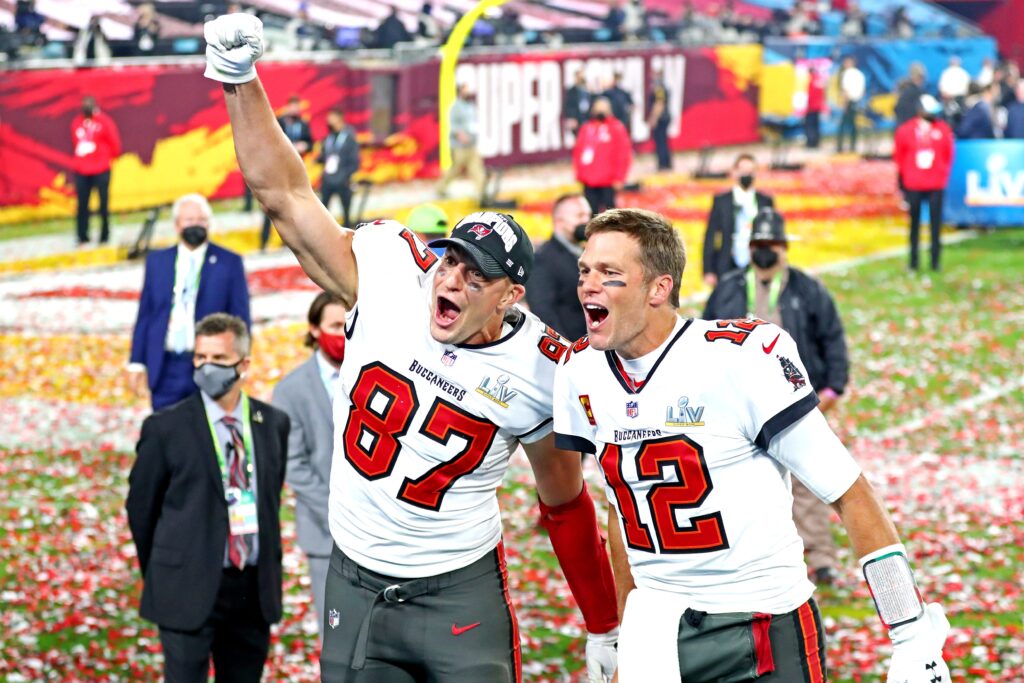
Audience
- Sentiment: Neutral
- Political Group: None
- Age Group: 18-34
- Gender: Male
Overview
- Dan Orlovsky criticized Andy Reid’s coaching performance during the Super Bowl, citing unpreparedness.
- He highlighted the Eagles’ effective defensive strategy that stifled the Chiefs’ offense.
- Orlovsky emphasized the importance of turnovers and team energy in determining the outcome of the game.
Dan Orlovsky’s Take on the Chiefs’ Super Bowl Loss: Lessons Learned
Super Bowl Sunday is often called the biggest day in sports, where the top teams battle it out for the ultimate glory in American football. This past Super Bowl had fans on the edge of their seats, not only because of the exciting plays and multi-million dollar commercials but also due to what many are calling a surprising defeat for one of the league’s most famous coaches, Andy Reid. Dan Orlovsky, an analyst with ESPN and a former NFL quarterback himself, had some strong words about Reid’s coaching during the game, and his comments raise some important questions about performance, strategy, and what it means to adapt under pressure.
Let’s break down Orlovsky’s review and understand why it has gotten people talking since the big game.
The High Hopes and the Big Fall
Before the Super Bowl kicked off, Kansas City Chiefs fans were filled with excitement and hope. They had a remarkable season and were led by their star quarterback, Patrick Mahomes. Andy Reid, the head coach of the Chiefs, is highly respected in the NFL, known for his inventive offensive plays and ability to lead his team to victory. However, the game against the Philadelphia Eagles didn’t go as planned for Reid and the Chiefs.
In the aftermath of the game, Orlovsky asserted that this was the worst performance he had seen from a Reid-led team, and he wasn’t shy about why. His comments were significant because they came from someone who understands football at a deep level. He pointed out that the Eagles’ defense played exceptionally well – comparing them to the “Legion of Boom,” which is a legendary unit known for dominating opposing offenses during their prime. This comparison emphasizes how formidable the Eagles were, but it also casts shame on the Chiefs for not performing well under pressure.
The Defense That Stifled the Offense
One major point Orlovsky made was about the Eagles’ defense. For those who don’t follow football closely, the defense is the part of the team that tries to stop the other team from scoring. Watching the Eagles play, it was clear they had a strategy that worked wonders. They didn’t blitz very often, which means they didn’t send extra players after Mahomes every time he dropped back to throw. This strategy allowed them to maintain good coverage on the wide receivers and put pressure on Mahomes without exposing themselves.
Mahomes, a player known for his remarkable ability to create plays on his own, struggled through the game. Orlovsky’s analysis suggested that the Chiefs were simply unprepared for how the Eagles would defend them. Typically creative and dynamic, the Chiefs’ offensive strategies seemed like they were put on hold. The team failed to adapt when they found themselves in a bind, which leads me to think: how often does a team’s success hinge on their ability to adjust mid-game?
Turnovers and Missed Opportunities
Another critical factor in the Chiefs’ defeat was the turnovers. If you’re new to football, a turnover occurs when the offense (the team trying to score) loses possession of the ball to the defense either through an interception (when the quarterback throws it to a defender) or a fumble (when a player drops the ball). These turnovers are absolute game-changers and can shift the momentum almost instantaneously.
In this Super Bowl, the Chiefs had two interceptions, and each one could be seen as a dagger to their hopes of winning. Orlovsky was clear about how crucial these turnovers were, suggesting that not only did they hand the Eagles free chances to score, but they also robbed the Chiefs of precious momentum. One thing that’s consistent in sports is that when a team loses momentum, it can feel almost impossible to regain it.
Imagine your favorite team is on a winning streak, everything is going right, and they suddenly miss a few big plays. That emotional and mental shift can impact how players perform. Orlovsky’s critique serves as a reminder that football isn’t just a physical game—it’s mental, too. Confidence, energy, and focus are all part of the strategy.
The Need for Preparation and Energy
Orlovsky’s comments brought attention not only to the Eagles’ superior play but also to the Chiefs’ energy level—something that many fans noted during the game. While the Eagles came out strong and engaged, the Chiefs appeared sluggish and unfocused, especially in the first half. For athletes at any level, energy is paramount. It sets the tone on the field and can influence how both teams perform.
Tight end Travis Kelce’s frustrations echoed Orlovsky’s critiques, highlighting the issues with turnovers and the lack of rhythm in their offense. When your team’s leader is feeling the heat, it’s a sign that something significant went wrong. Kelce, being a dynamic player himself, expressed how he felt that the Chiefs should have been more prepared and searchable in their execution.
It raises the question: what does it mean for a team to be “prepared”? For the Chiefs, it meant having a game plan that could evolve based on what was happening on the field. Orlovsky’s insights serve as a wake-up call that preparation isn’t just about knowing plays; it involves understanding the opponent, feeling the game flow, and being aware that adjustments need to happen quickly.
Looking Ahead: Regrouping for the Future
With this disappointing performance behind them, both Orlovsky and the Chiefs are looking ahead. The magic of sports isn’t just about winning; it’s about learning from defeat. Andy Reid and his team must evaluate what went wrong, adapt their strategies, pick up the pieces, and come back even stronger.
As the football season winds down and we look toward the next one, many fans will be asking: how can the Chiefs regroup to ensure they don’t face the same pitfalls next time? Will they bring in new players? Will the coaching staff tweak their strategies? As those questions swirl in fans’ minds, it’s key to remember that every season is a new opportunity for growth.
Wrapping It Up
In the end, Dan Orlovsky’s critique of Andy Reid’s coaching during the Super Bowl serves as an important narrative about performance, preparation, and resilience. It’s a reminder that even the greatest coaches and teams can stumble and that there’s always a lesson to be learned from every loss.
As fans, coaches, and players reflect on this Super Bowl, I’d love to hear your thoughts: What do you think the Chiefs should focus on to improve? How do you feel about the way Orlovsky characterized their performance? Share your opinions in the comments below!




